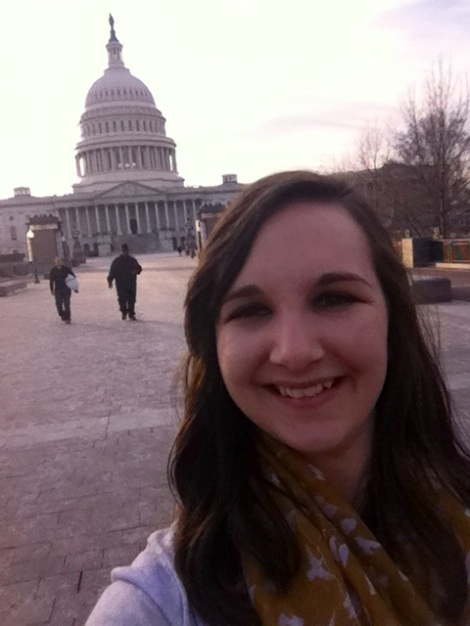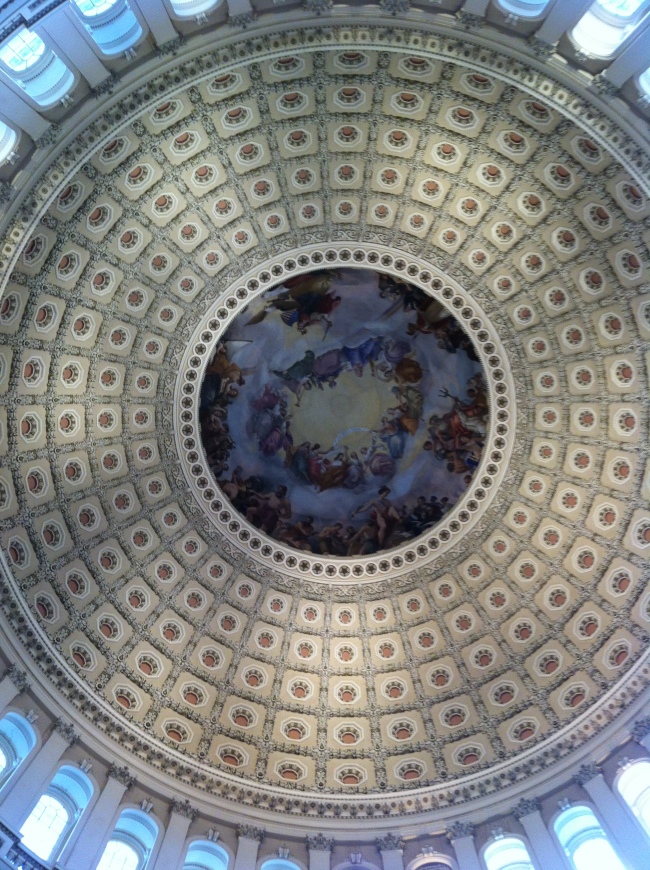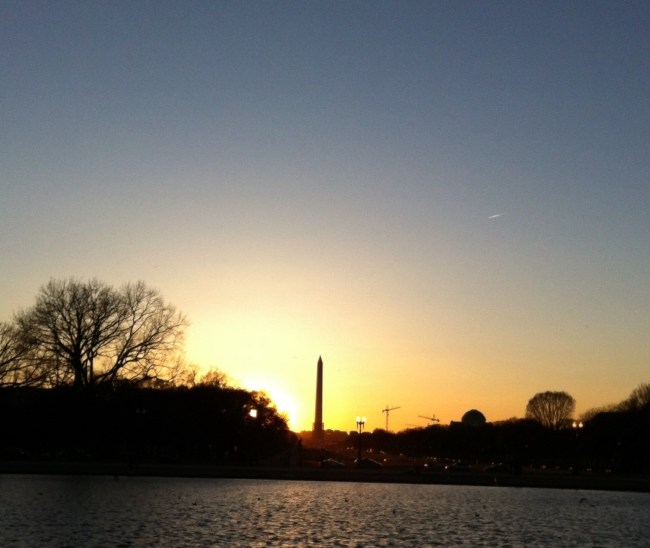From the desk of Trinity Honors Student Ben Hoekstra:
Sometime in the past few weeks, an article made its way to my laptop screen about social justice and the black population of America. It was published in The Atlantic, a piece titled “The Case for Reparations” by Ta-Nehisi Coates. Coates writes eloquently and powerfully on his point, citing one quote that gave me great pause: “‘It is in vain to alledge, that our ancestors brought them hither, and not we,’ Yale President Timothy Dwight said in 1810.” He speaks of a communal sin, something society as a whole did wrong.
Before I dive into this heavy discussion on communal sin, I would like to share an anecdote. A few weeks back I returned to my childhood hometown to visit old friends, and met up with one in particular. One night, we began a discussion. It was born out of a simple question about my high school. His mother asked if, given the choice, I would go there again. My friend, who is still there, proclaimed he would definitely not. He cited bad policies, hypocritical and lazy students, and a general lack of excellence. The conversation continued, evolving and shifting until settling on the issue of racism. My school is a part of the choice program, which allows inner city students to go to suburban schools (even private ones) on the government’s dime, largely due to a wretched public schools system in my city. I am from Milwaukee; The Business Insider ranks it as the most segregated city in the entire United States. Many of the students who take advantage of the choice program are black. The very real actions of some individuals at my school have led to a systematic reinforcement of negative racial stereotypes at my high school, as the students in the choice program who do not try or who cause conflict began a domino effect. The first to fall—all students in the choice program do not try or care. This is false. It is not universally true and it is not fair, but a full defense is for another time. The second—students in the choice program are taking advantage of the system. And third—all the students in the choice program are black and all the black students are in the choice program. Also verifiably untrue. Even so, these premises combine to train up yet another generation of men and women from my high school who buy into the horrible subconscious racism of American society.
As we talked, my friend’s dad brought up this point in a counter to my citation of a history of oppression and inequality for the black individual in America: Obama. For some, that name holds great promise. For others, great woe. Regardless, many a white individual has referenced his election as evidence that the tides have turned, that the minority has equal opportunity. Coates even referenced this in his article. He pointed out that the Obama’s are just one of many—the exceptional who have risen above the status quo. This is valid, and also brings to mind 43 other presidents whose complexions feel a bit closer to vanilla than coffee.
Regardless of all the debate, there is one thing that stuck with me. “It is in vain to alledge, that our ancestors brought them hither, and not we.” I am a white man. My people are the perpetrators of this atrocity. Directly? No. My grandfather’s grandfather was the first to arrive in the United States, long after the 13th Amendment. But this does not absolve me from my guilt. It is not white guilt, this cowardly awkwardness that knows something should probably be done yet waits for another to do it. No, this is a realization that there is red in my ledger! I have been given privileges and advantages spoken and unspoken for nineteen years. I have walked through neighborhood streets late at night and never had the cops called on me. I have worn a hoodie and never been followed by a neighborhood watch volunteer. I have grown up in the suburbs, I went to private school, I am in college. I have gotten awards and scholarships and almost every job for which I have applied. Yet this list doesn’t even scratch the surface of what I have been given. And I do not feel guilt for what I have been given. No, I feel guilt for others having been denied those privileges. I AM A WHITE MAN. I have the position of greatest privilege and power of any group on the planet. I have never had to break through a glass ceiling, I have never been physically objectified by someone on my first encounter, I have never been sexually harassed. I am not proud of my heritage. I stand here today, looking back on the long road of history ashamed. Some would point to the genius of men who invented airplanes and television and guns, the ingenuity of the men who wrote things like The Constitution of the United States or A Tale of Two Cities, the wisdom of men who created democracy and capitalist economics.But I see the blood of slaves dripping from those pages. I see the parchment on which our country began as gags in the mouths of women, the poor, and minorities. I see the miracle of moving pictures used to portray daughters and sisters as objects for physical pleasure and appraisal. I see a long legacy of hatred, oppression, bigotry, and pride.
So, no. I am not proud of my heritage.
I see generation after generation of proud men who have claimed to serve the LORD but have served their own interests. Who have used culture and circumstance and pen to shore up a collapsing house built upon the sand. I see the communal sin of the white man, and of the American white man. It is not just against my black brothers, but against all my sisters, against all those who don’t look quite like me.
Some of you may disagree with me. You may herald great men who weren’t like all the rest. You may point to the struggle of the Civil War (which arguably had absolutely no interest in the well-being of Southern slaves). You may say things are different now. Ok. Things are different.
But answer me this. Regardless of if you are also a white man, or if you were blessed by God to be a woman or actually have melanin:
Do you catch yourself thinking racist thoughts?
Do you catch yourself basing your opinion of someone’s trustworthiness or intentions or even wealth on the color of their skin or their gender?
I do. I will admit that as a shamefully broken human in need of Redemption. I do not excuse this, but I am fighting it. Every day, God helping me.
As long as this battle continues in our heads and hearts, it is not won in our streets. For we may be able to find statistics that relieve us of our burden, we may console ourselves with petty polite interactions as reversing the tide, we may isolate ourselves with those just like us. But we have a calling. Micah 6:8 says “What does the LORD require of you? To act justly and to love mercy and to walk humbly with your God.” To act justly. We are called to be just. The Old Testament prophets rebuked Israel for so many sins—idolatry, child sacrifice, ceremonial uncleanness, ect. But time and time again, the Word of the Lord came and said that the Lord hears the cry of the poor. Of the oppressed. Of the widow, and the fatherless. In America, that cry comes from our downtrodden brothers and sisters who have been refused equal treatment for centuries. Some have risen from the ditch in which we threw them to stand on level ground. But justice is not something that forgets. It has a long memory, spanning lifetimes.
We must decide what we shall do with justice in our little speck of meaning. We must choose this day whom we shall serve, and whom we shall repay.


